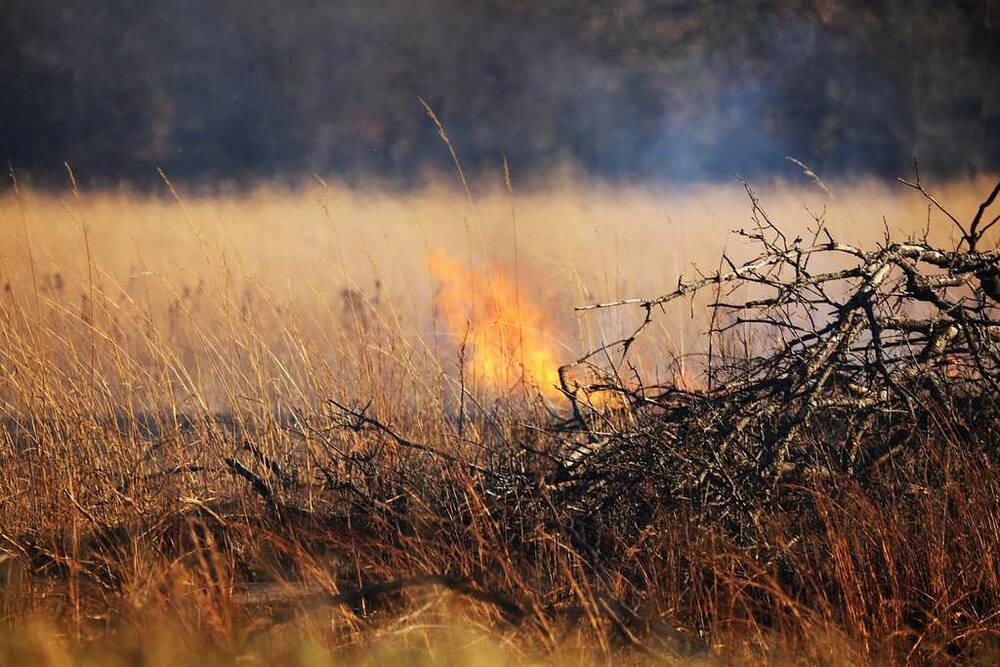daftandbarmy
Army.ca Fossil
- Reaction score
- 36,794
- Points
- 1,160
An interesting clip on widlfire fighting camps...

Forrest Tower - Information OfficerAn interesting clip on widlfire fighting camps...

 www.timescolonist.com
www.timescolonist.com
Just wait until Oct 31 to do it.Should be fine. I mean, it's not as if any large ammo dumps might go up if it gets away from them
Not really a possibility.Should be fine. I mean, it's not as if any large ammo dumps might go up if it gets away from them

DND plans 'prescribed burns' at Metchosin's Rocky Point
Burning of up to 50 hectares will be conducted by the B.C. Wildfire Service, and times will be determined by weather, DND saidwww.timescolonist.com

Really bad journalism. Like 6000 liters translates to 20 bathtubs?It seems De Haviland is restarting the production line on the CL-515 - lastest version of the 215/415 - with a 22-plane EU order.
For the record, I have never heard any version of the aircraft called the 'Canadair'; I rarely heard it called 'Superscooper'.

The World's Most Desperately Needed Airplane Is Back in Production
Manufacturer De Havilland Aircraft of Canada is rapidly bringing a water-bombing aircraft back into production as orders have surged due to raging wildfires fueled …financialpost.com

 www.timescolonist.com
www.timescolonist.com
MMmmmmm. Chainsaws, tractors, tools. Cut, cut, cut, remove, remove remove. That material would make great cheap bedding if its shit timber. Otherwise, sell it as lumber. We won't stop forest fires. Thats never gonna happen. We can influence how much wood is consumed by uncontrolled fire.Coming right up: more of the same - forever
Canada primed for more severe wildfire days, driven by dry forest fuel: study
When it comes to the geographic distribution of severe wildfire, research scientist Xianli Want says the findings suggest Canada's record-breaking 2023 season was not an aberration, but a "glimpse into the future."
Canadian forests are increasingly primed for severe, uncontrollable wildfires, a study published Thursday said, underlining what the authors described as a pressing need to proactively mitigate the "increased threat posed by climate change."
The study by Canadian researchers, published in the peer-reviewed journal Science, looked at Canadian fire severity from 1981 to 2020.
"The widespread increases, along with limited decreases, in high-burn severity days during 1981 to 2020 indicate the increasingly severe fire situation and more challenging fire season under the changing climate in Canada," the study read.
Co-author Xianli Wang, a research scientist with the Canadian Forest Service, says there were on average an additional two days conducive to high-severity fires in 2000 to 2020, compared to the previous two decades. In some areas, it was closer to five days.
While that may not sound like much, last summer's devastating wildfire in Jasper, Alta., grew to about 60 square kilometres in a matter of hours.
"This is just a more dramatic fire situation that we are currently having than before," he said.
When it comes to the geographic distribution of severe wildfire, Wang said the findings suggest Canada's record-breaking 2023 season was not an aberration, but a "glimpse into the future."
"You will see this kind of high-severity burning across the board," said Wang.
The study suggests the major environmental driver of fire severity was dry fuel, such as twigs and leaves, while the effect of weather – such as hot, dry and windy conditions – was more pronounced in northern regions.

Canada primed for more severe wildfire days, driven by dry forest fuel: study
When it comes to the geographic distribution of severe wildfire, research scientist Xianli Want says the findings suggest Canada's record-breaking 2023 season was not an aberration, but a "glimpse into the future."www.timescolonist.com
MMmmmmm. Chainsaws, tractors, tools. Cut, cut, cut, remove, remove remove. That material would make great cheap bedding if its shit timber. Otherwise, sell it as lumber. We won't stop forest fires. Thats never gonna happen. We can influence how much wood is consumed by uncontrolled fire.
Failing that, pre-emptive controlled burns, chop chop, get on with it.
BTW, when do we start the 2025 wildfire season thread?
That explains the faint reggae I hear whenever I walk my dog in the woods.Zombie fires burn underground year round so might as well just call the thread ‘Wildfires’
First call out was yesterday. Does that count?MMmmmmm. Chainsaws, tractors, tools. Cut, cut, cut, remove, remove remove. That material would make great cheap bedding if its shit timber. Otherwise, sell it as lumber. We won't stop forest fires. Thats never gonna happen. We can influence how much wood is consumed by uncontrolled fire.
Failing that, pre-emptive controlled burns, chop chop, get on with it.
BTW, when do we start the 2025 wildfire season thread?
First call out was yesterday. Does that count?
False alarms from jumpy public but not the first time I've had to drag fire hoses through the snow.
Joking aside I'm really happy we don't deploy to California. Looking at that mess going on in Greater LA and just hoping the fatality rate is low. 129km/hr winds inside LA and up to 160 km/hr winds reported in mountains + drought + 3 separate fires starting.
CALFIRE and LA are not having a good day.

Yeah, LA and LA County have an absolute shit show on their hands.First call out was yesterday. Does that count?
False alarms from jumpy public but not the first time I've had to drag fire hoses through the snow.
Joking aside I'm really happy we don't deploy to California. Looking at that mess going on in Greater LA and just hoping the fatality rate is low. 129km/hr winds inside LA and up to 160 km/hr winds reported in mountains + drought + 3 separate fires starting.
CALFIRE and LA are not having a good day.
